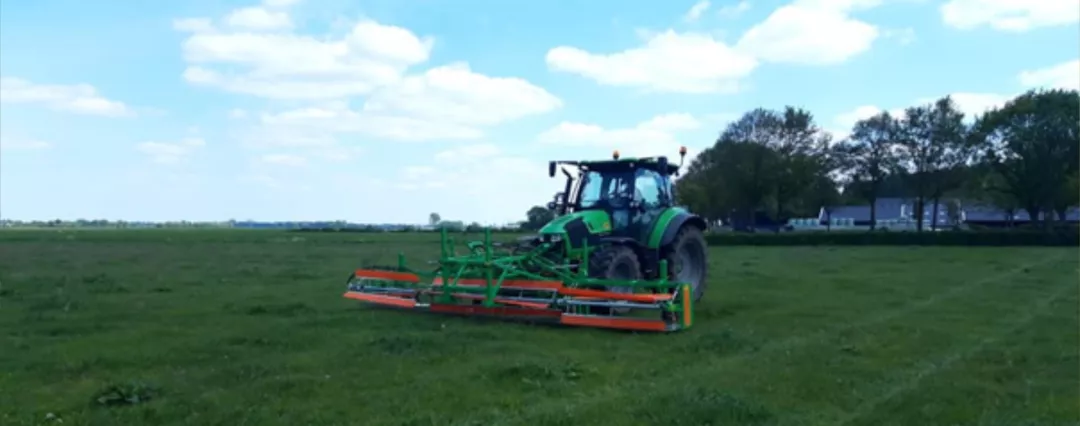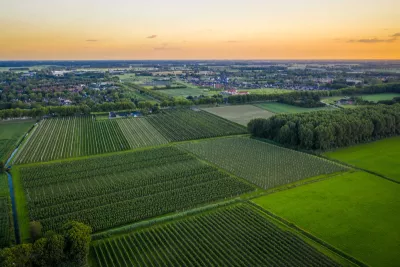General information
RDP Priority
- P2. Competitiveness
RDP Focus Area
- 2A: Farm’s performance, restructuring & modernisation
RDP Measure
- M04: Investments in physical assets
Beneficiary type
- Farmer / land manager
Summary
Maaike and Joël van Beek are organic farmers in the province of Gelderland, the Netherlands. They keep 125 dairy cows with young stock and produce their own wind and solar energy. Organic farming is labour intensive and the couple was keen to improve their productivity by reducing the amount of time and effort needed for weeding. The project idea was to invest in a mechanical weeder fixed to a tractor, which cuts weeds but not grass. The successful EAFRD funding application was written and submitted by the farmers themselves.
Results
- Once the mechanical weeder was purchased, it reduced the manual labour required for weeding by 80%.
Ressourcen
Documents
Context
Maaike and Joël van Beek are farmers in the village of Ellecom in the province of Gelderland, the Netherlands. In 2019, they converted their farm to be organic. They keep 125 dairy cows with young stock and produce their own wind and solar energy.
Organic farming prevents farmers from using chemicals when fighting weeds. Therefore, weeds must be removed by hand or mechanically. This requires a lot of time and manual labour, and friends regularly need to help with the time-consuming process.
Objectives
The main aim of the project was to remove weeds without chemicals. The objective was to reduce the highly work intensive activity of weeding by hand with a more efficient process by investing in a mechanical weeder.
Activities
The main project activity involved the procurement and purchase of a mechanical weeder.
A mechanical weeder needs to be suspended in the front lift of a tractor to cut weeds. It operates in a mowing fashion, cutting plants and weeds with thicker and stiffer stems while grass with soft stems is safely transported through the machine and remains in place uncut.
The weeds need cutting a few times as they grow again and this is exhausting. When cut at the right time, this process will prevent the weeds from going to seed.
By using the mechanical weeder, manual labour is reduced significantly and organic farming is made more attractive.
Main results
- The main results included the successful purchase of one mechanical weeder that operates well and effectively.
- Now, 80% of the weed is removed by the mechanical weeder, significantly reducing the amount of manual labour required.
- The machine works well but requires some prudence when used on uneven surfaces.
Key lessons
- The farmer’s wife wrote the funding application for the mechanical weeder. The application was successful, although it required a lot of attention and organisation to fill in the form correctly. Writing funding applications is not the typical day-to-day business of farmers.
- The investment worked out very well and reduced the workload of weeding by 80%. This benefits both nature and the farmer.
- Managing the subsidy and investment were very straightforward and simple tasks.
We are very happy with this weeder; it cuts 80% of the weeds and saves a lot of hand labour.’

